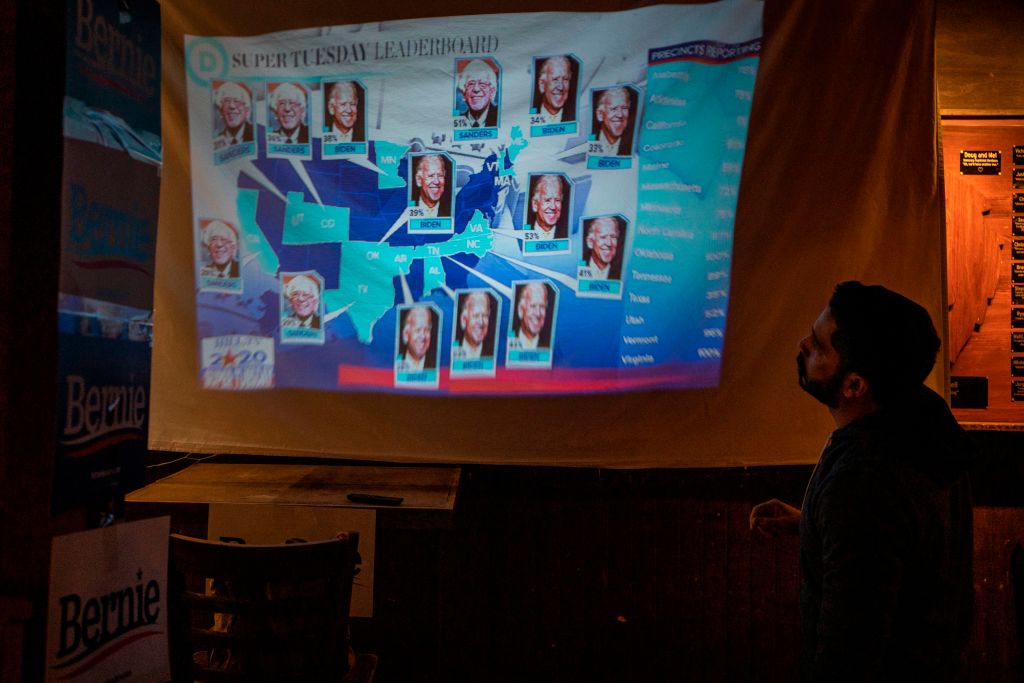Biden's coalition showed up on Super Tuesday. Bernie's did not.


A free daily email with the biggest news stories of the day – and the best features from TheWeek.com
You are now subscribed
Your newsletter sign-up was successful
Former Vice President Joe Biden went into Super Tuesday as an underdog, but after winning at least nine of the 14 primaries, he ended the night in pole position, or close to it. Biden began his surge with big victories in the South, fed by lopsided support from black voters and white suburbanites, and he ended by scoring an upset victory in Texas over Sen. Bernie Sanders (I-Vt.), the previous frontrunner.
"A big problem for the Sanders theory of this race is that when turnout is high, he wins," The Washington Post's David Weigel noted. "Turnout is way up, but the most reliable new voters are Biden-curious suburbanites." The "Sanders coalition is sticky, but so far, it's static," CNN's Jeff Zeleny adds. "Sanders has argued again and again that he can build the biggest coalition of voters," but "in many cases his votes have gone down" from 2016. Sanders did increase his support among Latino voters, CNN's Zachary Wolf points out, but the young voters he promised would turn out for him failed to materialize.
Addisu Demissie, former communications manager for Sen. Cory Booker (D-N.J.), notes who did show up:
The Week
Escape your echo chamber. Get the facts behind the news, plus analysis from multiple perspectives.

Sign up for The Week's Free Newsletters
From our morning news briefing to a weekly Good News Newsletter, get the best of The Week delivered directly to your inbox.
From our morning news briefing to a weekly Good News Newsletter, get the best of The Week delivered directly to your inbox.
"Sanders didn't get wiped out on Tuesday night — far from it," Ezra Klein writes at Vox. "But he is, in a way, running the wrong campaign," positioning himself as "an insurgent facing down a corrupt Democratic establishment" when he notched his early victories "as a Democrat, not a revolutionary." Sanders "needed to pivot to a strategy that would unite the existing Democratic Party around him," Klein adds. His plan to "turn out enough new voters" to "sweep away the Democratic establishment and build his own party" failed from the start, and Team Sanders quickly needs to accept that "if you treat voters and officials in the party you want to lead as the enemy, a lot of people in that party aren't going to trust you to lead them."
A free daily email with the biggest news stories of the day – and the best features from TheWeek.com
Peter has worked as a news and culture writer and editor at The Week since the site's launch in 2008. He covers politics, world affairs, religion and cultural currents. His journalism career began as a copy editor at a financial newswire and has included editorial positions at The New York Times Magazine, Facts on File, and Oregon State University.
